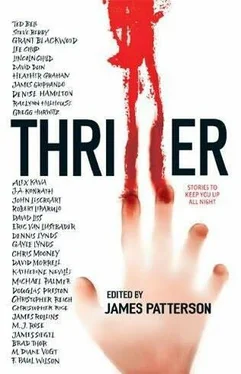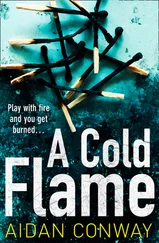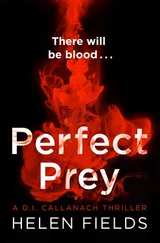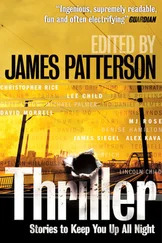Hamilton hadn't been planning such a trip and had only two hundred dollars and one change of clothes in her backpack. But she knew a good offer when she heard it, and being an adventurous sort, arrived in downtown Tirana in the late afternoon and immediately began calling U.S. Fulbright scholars in Albania, hoping to find somebody with a spare couch where she could crash. Luckily, she reached another Fulbrighter before dark and he took her to eat at what was then Tirana's only French restaurant, where they met the proprietor, a handsome and cultured Albanian man.
The restaurateur eventually offered Hamilton a ride back in his Mercedes to Skopje, where he often traveled for business. Due to scheduling conflicts she never took him up on his offer, and it wasn't until much later that she learned the full story of this man's life. In At the Drop of a Hat, Hamilton uses that knowledge and takes readers on a thrill ride of Balkan intrigue, providing along the way a taste for the sights, smells, textures and landscape that few Westerners have seen.
A tale from one who lived it.
Jane looked out the passenger window and told herself that everything was fine. Bashkim was driving, the Mercedes hurtling along the Albanian highway at a hundred kilometers an hour. The air inside the car felt tight and crackly. Outside, greenhouses stood in untilled fields, their shattered windows gaping empty. A black-clad woman followed a herd of goats up a rock-strewn hillside, spinning wool on a hand spindle. Anything could happen out here, Jane thought, and no one would ever know. The wind would shred her clothes and rain would bleach her bones and when spring came, the goats would crop the earth around her.
This has to stop, Jane scolded herself. She was a sensible girl, not one of those high-strung ones that fell apart at the drop of a hat. She just needed to rekindle the excitement she had felt last night.
She and Paul had been in their favorite Tirana restaurant, arguing because he refused to tap his diplomatic contacts to get her a ride across the border to the former Yugoslav republic of Macedonia. A conference on Balkan literature was taking place in the capital and she really wanted to attend.
"What's the big deal?" Jane had protested. "Your embassy courier does the Tirana-Skopje run twice a week."
But Paul had suddenly grown engrossed in photos of the Eiffel Tower, the Arc de Triomphe and the French Alps that decorated the walls. Over the sound system, Edith Piaf sobbed about love and betrayal. Omelettes and salades nicoises sailed out of the kitchen. This had been their sanctuary, a little piece of Paris that shut out the chaos outside that was Albania. But now Albania had followed them inside.
"I can't put a civilian on that route, it's strictly for consular business," Paul said at last.
Since when am I just a civilian? she fumed, recalling other, more fevered words he had whispered in the three weeks they'd been together. He was a low-level attache at the U.S. embassy and she was a Fulbright scholar. They'd met at an embassy reception her first week in Tirana, bonded over too much Albanian mer-lot and hadn't been apart since, though in her weaker moments she wondered if it was just an expat thing.
"What do you want me to do, hitchhike? There aren't a lot of options going east."
There weren't a lot of options because the delusional Commie who had ruled Albania for almost fifty years had torn up the rail lines and sealed the border out of fear that the Yugoslavs, America and NATO planned to attack his backward and impoverished nation. Years after Enver Hoxha's death, it was still a logistical nightmare to get in and out. No trains or regional buses. The only planes went to Western Europe, then you had to double back. Taxis were cheaper, but she was a student and didn't have a hundred and fifty dollars to spare.
"Excuse me," said a low, melodic voice. "I don't mean to eavesdrop, but your voices…perhaps I can be of help."
The proprietor, Bashkim, stood before them, sleek in an Italian suit, hands clasped deferentially. He had toiled for years in Parisian restaurants, then come home to show the natives the glories of French cuisine. Except that Albanians, at their salaries, couldn't afford even one frite, though the brasserie had caught on immediately with the expense-account NGO and diplomatic crowd.
Paul fixed the restaurateur with a pensive gaze. "Really?" he said, a strange light flaring, then banking behind his eyes.
Bashkim gave a modest smile and bowed in Jane's direction. "I must go to Skopje on business tomorrow," he said. "I would be honored if you would accompany me. There is plenty of room."
"I'm not so sure that's a good idea," Paul said slowly.
But Jane had seen the shiny blue Mercedes out back and was already imagining the smooth ride, the lively discussion as first the countryside, then the desolate mountain passes, soared by. Bashkim had exquisite manners, spoke five languages, understood civil society. His wife, a beautiful Albanian with green eyes, kept the restaurant books while their little girl, immaculate in frilly dresses, played with dolls in the back. Jane could tell they were in love. Unlike many of the men who stared with hungry, medieval eyes, Bashkim never gave her a second glance. She'd seen how the expat community embraced him. She'd be safe. Plus, it would end the dreary row, her nagging suspicion that Paul didn't care enough to pull this embassy string for her.
Feeling a sudden need to assert herself, Jane said. "I am sure. I'm going."
Paul threw up his hands in mock horror, winked at Bashkim. "These Western women, they have minds of their own."
She had kicked him under the table, but later that night, they'd fallen into bed with their usual frenzy, all the sweeter for her impending absence. Afterward, Jane was touched that he shoved his cell phone into her backpack and insisted she keep it on until reaching Skopje, at which point she was to call and announce her safe arrival.
And so it was that Jane had set off from Paul's apartment this morning. The streets smelled of wet earth and sewers. Deformed Gypsy children writhed on cardboard, begging from passersby. Housewives leaned over balconies, beating carpets with red-faced fury. Four stories up, a cow mooed indignantly. The sight of livestock in apartments had startled her initially, but Jane soon learned you couldn't leave a cow out overnight in Tirana any more than you could a car.
Bashkim was tossing a suitcase into the back seat when she arrived. The Mercedes seemed low to the ground, like it was carrying a heavy load, but Jane thought that unlikely. Albania exported little but its own people.
Standing in the clear Adriatic light, she sensed Bashkim checking out her hiking boots and Levi's, the fleece-lined vest she'd thrown over a red ribbed turtleneck, and felt something shift. A flicker of apprehension went through her. Had she misjudged him? Then, he broke into a familiar smile and her misgivings evaporated.
"You ready?"
She climbed in. As the apartment blocks, then the dismal shanties on Tirana's outskirts gave way to farmland, they chatted about Albanian literature and culture. Then talk turned to the present day.
"It's wonderful, what you're building here. There's so much opportunity."
"There was more opportunity in France," Bashkim said. "But I couldn't get residency."
"But the West is so sterile. Everyone's obsessed with money, getting ahead. There's no sense of family, of what's really important."
"You think people here aren't obsessed with money?" he said, jabbing the gas. After that they sat in silence. The Mercedes jostled with donkey carts and tractors, passing so close that Jane could have plucked wisps of straw from a farmer's hair. An olive-green truck of Soviet vintage emblazoned with the letters STALIN passed them, stuffed with young Albanian men who hooted and hollered. But other vehicles fell into line behind them, content to let the Mercedes lead.
Читать дальше












